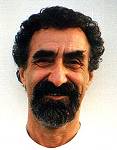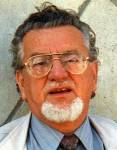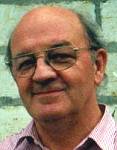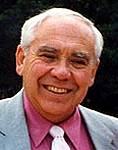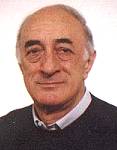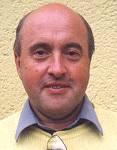
|
The world of non-commercial film and A-V |
Events Diary | Search | ||
| The Film and Video Institute | | ||||
- The Future of UNICA - discussion paper by Max Hänsli
- Letter from the President
- Who's Who (photographs)
- Luxembourg - Metamorphosis of a Landscape
- UNICA 2002
- Film History
- Victor Hugo Competition - Guernsey Lily
To the federations affiliated to UNICA and all friends of UNICA:
Dear film friends,
At the invitation of Stanislaw Puls, a meeting of the Committee took place in Bydgoczsz (POL.) from April 11 to 14. In addition to the usual items, the Committee discussed preparations for the UNICA Congress in Luxembourg. A short report on this meeting appears below.
Outstanding membership fees
The Committee observed with much regret that the problem of outstanding membership fees is worsening. Those national federations which failed to pay their 2001 membership fees will not be allowed to present films at UNICA 2002. The Treasurer will again ask all federations to transfer the fees they have to pay. On the occasion of the autumn meeting, in compliance with the Articles, the Committee will unfortunately have the duty of deciding that federations in default are excluded. But we hope that we will not have to come to such an extreme.
Membership fees in EUR or CHF?
Following the decision made at last year's General Meeting, this question will have to be settled in Luxembourg. The committee will make an appropriate statement on the issue.
UNICA 2002 in Luxembourg
The Committee asks national federations to advertise in their clubs and encourage members to take part in the next UNICA Congress which will undoubtedly be most interesting. It will definitely be worth while to be there with us!
The Committee decided to give each national federation - free of charge and unsolicited - a DV cassette of approximately 60 minutes with a selection of the best films entered for the year's UNICA Competition. The Committee hopes that this cassette will then be circulated to the members of the national federation and - as far as possible - be shown in various events staged by the federation, as a way to advertise UNICA, in particular the annual Congress. This will be an experiment in 2002 and we will then decide whether or not to continue it, possibly in a different form.
UNICA 2005
As we all know, the 2003 UNICA Congress will take place in Warsaw, Poland. In 2004, the great event will be staged in Germany. We are looking for the 2005 organiser: is your federation interested by any chance? Please tell us!
UNICA on the Internet
The Secretary-general, Arie de Jong, puts in a lot of effort to make sure that information is always up to date and accurate on the Internet. There is also a special Web page dedicated to the 2002 UNICA Congress in Luxembourg. The Committee (Wolfgang Freier) will organise an information stand in Luxembourg where details of these Web pages can be obtained.
The Future of UNICA
Some information this issue is presented in the following article. It was drafted as a preliminary speculation about the future of UNICA and should now serve as a platform for a discussion about the issue and a forum open to all questions and opinions.
- Max Hänsli (CHE), UNICA President - - transl.: Jean-Claude Lejosne (FRA)
top of page
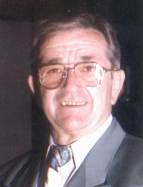 The Future
of UNICA
The Future
of UNICA
some comments from the President
Dear UNICA film friends,
As the president of UNICA, it is probably my duty to start the debate. I consider that it is a part of my task to take into account all the changes that are coming up - even if they are not yet obvious - and to submit new ideas on the subject.
In fact, two observations induced me to draft this article.
- This year, we will have to make a decision that will have - or, at least, could have - enormous significance. We will have to cancel the membership of several national federations which failed or were not able to pay the fees.
- The number of the participants in Congresses is declining. Why? The cost of these Congresses for the participants ? The nature of the programme? Or is it because UNICA as an ageing institution, has entered the "final" phase of its lifetime?
The following remarks are based on some observations that I made personally or some participants shared with me in conversations. I felt compelled to try to identify the problems before we reach breaking point and to endeavour to do something to combat this development. The idea is first to collect opinions and points of view from various sources, including the national federations, their clubs and their members.
Concerning Item No. 1
The statutes specify in clear terms to all new members what their rights and duties are. The Committee has examined the problem on various occasions and tried to provide solutions. In the past, we called on the better-off national federations and asked them to give support to the financially weaker countries. This was done in various ways, sometimes by taking over the payment of the full amount of annual fees for just one year, at other times half of the amount. But the outcome has been very disappointing: the beneficiaries did not come up with their fees the following year and yet these federations should not be excluded from our union. Then I tried very hard to obtain subsidies for these countries from UNESCO, but so far without success. Consequently, how ever unpleasant it might sound, I see no solution to this problem.
Concerning Item No. 2
What can we do to boost interest in UNICA Congresses and the Film Competition? I know that some people turn a blind eye to the reality of this decline or have different opinions about it.
And yet, various facts underline this trend. Typical UNICA participants are increasingly elderly people and we have to bid farewell to old friends on more and more occasions. Conversely, we have fewer and fewer occasions to see new faces at UNICA Congresses and this is a fact that can hardly be disputed.
Another point is apparently the fact that the cost of participation in UNICA is too high. However, I would like to remind you that we draw the attention of all UNICA Congress organisers to this question and we will go on doing this. In this way we try to maintain the price of the Congress card at about 150 Euros and also make sure that the price of the accommodation offered is reasonable.
We could also imagine that, in the course of time, the attractiveness of Congress may have "evaporated" completely.
This is why, two years ago, we decided to change the form of jury meetings to make them more attractive. The introduction of the block discussions turned out to be a good procedure and participants favoured the idea that the moderator (with no right of vote) for these discussions should be a Committee member.
The innovation to be introduced this year is that the procedure will apply only to block discussions whereas, for the public jury meeting, with the attribution of awards, the debate will be conducted by the chairperson of the jury.
In the past few years, I have tried to evaluate the number of people attending the presentation of the various national programs. I noticed - and I was not the only one - that, for the programme of certain countries, it was next to full house whereas, with certain other countries, the number of spectators was extremely modest.
My interpretation was that there is some kind of "prejudice" applying to this or that national programme, and this opinion was confirmed by several conversations I had with participants.
What could it look like? We take it as a principle that the members of UNICA are national federations. We are surely the only organisation of this type in the field of film-making and things should not be changed in that respect. However, this does not mean that we should be afraid of modifying something. I have explored various possibilities and would like to submit the following proposal:
Proposal
We will maintain the principle of having the jury decide which national programme is most interesting. But there is no obligation to present the films from a given country in sequence! My proposal is to distribute the various items of the national programmes over the days of the UNICA Congress. The UNICA organiser will be in charge of designing the proper order of projection. Here are some of the advantages and the possible drawbacks of this procedure:
"Disadvantages": the jury will not see all the entries of a given national programme in a row to evaluate its quality. Consequently, the jury will have to recompose the selection of the specific country on the basis of the documents made available to them and prepared for each film (file cards). This system, in my opinion, could be an advantage because the jury members will have to give even more attention to the national programme, in particular at the end of projections."Advantages": the prejudices of the audience in regard to a national programme will be dissipated because it will be some time before all the films of any particular national programme can be seen. The mixture in the presentation will lead to a more attractive programme and will be more interesting both for the audience and the jury. But this will also imply that the national federations make available their explanatory leaflets about their national programmes at the very start of the contest, which should not be too big a problem.
But it would be advantageous for spectators as they would have to give more thought as to which programme will be chosen by the jury as the "most interesting". I believe that the experiment would be worth while. What do you think?
We also discussed significant innovations and devoted much time to them. I would like to report about them too and kindly request you to give us your opinion on them.
I am aware of the fact that a form of development applying to a given country does not automatically apply to others. But I am convinced that the following observation, sooner or later, will apply to an increasing number of federations.
I am referring here to the diminishing number of members in the clubs - leading, in some cases, to the dissolution of these clubs - and to the ensuing problems for national federations.
Such problems undoubtedly have an impact on UNICA and I take it as a part of the Committee's duty to consider this question, even if we are not in a state of emergency.
What are the reasons for it ? We have already mentioned the fact that members disappear by death, and this reduction is not - or seldom is - offset by registration of new members. Here again, we see that young people are undeniably not keen to submit themselves to the discipline of a club. All the same, what can we do in the face of the fact that young authors do not want to be tied down? Here is a difficult question for which there are no obvious answers.
The UNICA Tree
For me, UNICA is an organisation which can be compared to a tree. The tree grows and blooms in the spring because it has roots. But if, year after year, new roots are cut (corresponding to losses and cancellation of membership), the tree is likely to be blown over with the next gale as its base (corresponding to the national federations) becomes weaker and weaker.
I am not certain that you will all accept this comparison, but if you take some time to consider the situation, you will understand that there is much truth in it.
So far, I have not mentioned any specific country. To clarify the issue I am dealing with, I would like to provide some examples. As members of UNICA, we take pride in being an international organisation. We could once boast of having members on all continents, ranging from Australia to Puerto Rico and including New Zealand, Brazil, Japan… But where are they now? They have left. Let us also remember all the activities we had with such countries as the former Soviet Union or the countries of Eastern Europe, or with the various nations which became UNICA members after the collapse of Yugoslavia? We have lost many of them. I am sure you will now better understand my concerns. I am looking for solutions and these solutions will not in any case be easy ones. But that should not be taken as a deterrent and some of the solutions found might be further implemented by my successor.
I think it is quite important that we all become aware of the fact that the members of UNICA make up the core of our organisation and are fundamental for the prolonged existence of the union. But, at the same time, experience shows that things will always be like that.
And yet I think that we must take support on that basis. This is specifically the reason why I am convinced that we have a duty to look for ways to make our UNICA Congresses and the programmes of the Film Competition of national federations more attractive, and this is the conviction I would like to share with you.
But this is not enough. We should also give some thought to the future of UNICA. We have new support to ensure sustainable development for UNICA. The Film Competition for national federations should go on having full priority and this will not be changed; the Contest is staged basically for its members, for the national federations and this principle should remain untouched.
But what do national federations do with such authors who are not prepared to be tied down in clubs or the ranks of their national federation? Very often - and most often after overcoming great resistance - several countries have introduced the individual membership concept. Everybody has been looking for solutions and many of them could find no others.
However, what can be done for all authors who refuse to be registered in a club and/or a federation? I have noticed on many occasions that these persons are not "rebels", but just persons who want to remain independent when indulging in their favourite hobby. So, is it not high time for us to start exploring this new possibility and consider that this might be a new challenge for UNICA, i.e. offering a forum to these authors? Let us give some thought to this idea. I will submit a proposal to you, but I am sure that there are other possibilities and I am looking forward to seeing or hearing your suggestions on this subject.
So, what would it be like if ...
- alongside the Competition with national film selections, we organised an international competition open to all authors? This contest would have its own denomination, integrating a reference to UNICA. I could imagine that the traditional UNICA Film Competition would finish on Thursday and the contest for individual authors would then start on Thursday or Friday. The films would be evaluated by another jury, completely separated from that of the "regular" UNICA Competition. It is still premature to talk about possible awards and prizes. In any case, I would like to have your opinion on this point.
It does not really make sense for me to make a list of pros and cons as they seem to be rather obvious. In all cases, this would certainly be valuable publicity for UNICA, which, in turn, would have a positive impact on our membership in UNESCO through IFTC.
I am aware that my request is imposing on those who read this article. But you surely understand my concerns about the future of UNICA and my quest for solutions, though I make no claim that I know where the truth is. I kindly ask you to share with me any opinion that you have on this subject. Please do not respond only to the last question; on the contrary, please try to provide an answer to a maximum number of these questions so that we can delineate together the circumstances for our renewal.
Many thanks in advance.
Max Hänsli, Kürbergstrasse 30, CH 8049 Zürich, tel. and fax
+ 41 1 342 1066
transl.: Jean-Claude Lejosne (FRA)
top of page
Robert Kalman (FRA) |
Stanislaw Puls (POL) |
Werner Kaufmann (CHE) |
Louis Schmitz (LUX) |
Jeff Van Gompel (BEL) |
Michal Macicka (SVK) |
Lee Prescott (GBR) |
Hansjoachim Wallstein (DEU) |
Peter Skodawessely (DEU) |
Ariel Winograd (ARG) |
Alessio Zerial (ITA) |
Günther Agath (AUT) |
LUXEMBOURG - METAMORPHOSIS OF A LANDSCAPE
Julius Caesar wrote about the dense and impenetrable forests of these regions and even today Luxembourg is covered with large woods and offers beautiful landscapes which justify the name "Green heart of Europe."
In the northern part of Luxembourg lies the Oesling, with hills densely covered with vegetation, meandering rivers and seemingly endless narrow valleys winding their way through them. The Gutland (Goodland) in the south has gentler hills, but doesn't lack charm either, with plenty of rivers and small streams, large forests, green fields, meadows and vineyards.
From the verdant hills and valleys in the north to the lower regions of the south, with its vineyards at the Moselle and the bizarre rocks which can be found in the east, the Grand-Duchy presents in a very small territory an astonishing variety of landscapes, ideal for holidays, leisure and relaxation.
Luxembourg and its five tourist regions: Luxembourg - the Capital and the Heart of the Goodland, The Ardennes, The Moselle, The Land of Red Rocks and Mullerthal - the Little Switzerland.
UNICA 2002
LUXEMBOURG
23rd August - 1st September 2002 at Conservatoire de la Ville de Luxembourg
World Festival of Non-Professional Film Makers.
Website:
http://www.fgdca.lu/unica2002
Organisation Committee
| President: Georges Fondeur 49, rue Laach L - 6945 NIEDERANVEN tel.: + 352 347080 fax: + 352 223465 mobile: + 352 91 347080 e-mail: fondeur@vo.lu |
Secretary: Louis Schmitz P.O.B. 4 L - 9201 DIEKIRCH tel.: + 352 809667 fax: + 352 802446 e-mail: louis.schmitz@ci.educ.lu |
| Members: Claude Charnaut, Yvo Fumanti, Robert Grossklos, Roger Hansen, Robert Hohol, Marco Klein, Emile Lorenzini, Jorge Marques, Jean-Claude Metz, Nico Sauber, Jeannot Stirn | |
Accomodation Information
Alvisse Parc Hotel **** Official UNICA Hotel - Special Shuttle Bus
Hotel to UNICA
single - 75,00 Euros - B & WC
double - 87,50 Euros - B & WC
triple - 100,00 Euros - B & WC
Hotel Mercure Alfa **** situated near the central bus and railway
station
single - 120,00 Euros - B & WC
double - 120,00 Euros - B & WC
Parc Hotel Belair **** situated near the Congress centre.
single - 195,00 Euros - B & WC
double - 213,00 Euros - B & WC
Hotel Chez Anna et Jean - situated 15 minutes by car from the Congress
Centre.
double A - 45,00 Euros
double B - 50,00 > 58,00 Euros - B & WC
Camping Kockelscheuer - situated 15 minutes by car from the Congress
Centre.
per person - 3,00 Euros (car included) per caravan - 3,50 Euros
per tent - 3,50 Euros electricity - 1,25 Euros or 0,375 Euros/kWh
top of page
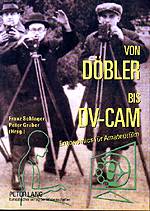 A new book: "From Doebler until DV-CAM. Ergonomics for
Amateurfilm. To the History of Cinematography." Publisher Peter Lang, Frankfurt
a.M., 454 pages.
A new book: "From Doebler until DV-CAM. Ergonomics for
Amateurfilm. To the History of Cinematography." Publisher Peter Lang, Frankfurt
a.M., 454 pages.
Until now Film History has dealt with cinema as either commercial product or art movies. This book applies to cinematography a previously unconsidered approach, the science of ergonomics, starting with their common roots in the Biedermeier epoche.
Contemporary ergonomics allows investigation of the strain multimedia screens place on the eyes. This suggests how well-judged cinematography can establish clearer communication.
The early engineers of the moving image were clearly amateurs, so modern amateur cinema can be seen as a continuation of the process. The development of amateur cinematography is the oldest, market-independent cinematographic work which has been subject to continuous description since its invention around 1830.
The socio-cultural incorporation of the moving image phenomenon is illustrated, for example, by the oldest continuously operating Austrian film club which has run since 1927.
From the contents:
First part: Biographies of early engineers who were the pioneers of Multimedia and Ergonomics with contributions from 14 guest authors complementing some facets of the topic.
Second part: Leaders of this evolution in cinematic equipment, organisations and software as thematic emphases in the living decades of the Austrian Amateur Movie Maker Club (KdKOe).
Third part: Chronicle of the Austrian Amateur Movie Maker Club.
Pictures: The book contains more than hundred illustrations.
Main Editor: Franz SCHLAGER is a scientific employee at Salzburg University and studies amateur film production.
Co-editor: Peter GRUBER is a businessman in Vienna and president of the Klub of the Kinoamateure Oesterreichs (KdKOe).
Author: Franz Schlager (AUT)
The 10th Guernsey Lily International
Film Festival
 Victor Hugo wrote "Les Iles de la Manche sont des morceaux de
France tombés dans la mer et ramassés par l´Angleterre".
Guernsey is one of those fragments, in 2002 the island will celebrate the
bicentenary of Hugo's birth. For twenty years he lived with his family in
the island. He wrote many of his books at his desk from where he could see
the coast of France. The Festival will include a class for films relating
to Victor Hugo. Entries must have a connection to Guernsey but not necessarily
shot in the land. The prize will be a trophy given by the Victor Hugo Working
Party and E500 donated anonymously.
Victor Hugo wrote "Les Iles de la Manche sont des morceaux de
France tombés dans la mer et ramassés par l´Angleterre".
Guernsey is one of those fragments, in 2002 the island will celebrate the
bicentenary of Hugo's birth. For twenty years he lived with his family in
the island. He wrote many of his books at his desk from where he could see
the coast of France. The Festival will include a class for films relating
to Victor Hugo. Entries must have a connection to Guernsey but not necessarily
shot in the land. The prize will be a trophy given by the Victor Hugo Working
Party and E500 donated anonymously.
For details of the festival see the International Agenda pages.
Share your passions.
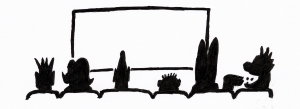
Share your stories.
